- Iterate
- Meet The Team
- Can Bread and Cheese Recipes Adapt to the Modern French Diet?
Can Bread and Cheese Recipes Adapt to the Modern French Diet?
Bread, cheese, and wine is a holy trinity in France, and it’s currently under siege. With growing concerns about gluten and the global vegan awakening, the bread and cheese combo might not survive this century unless we adapt their recipes.
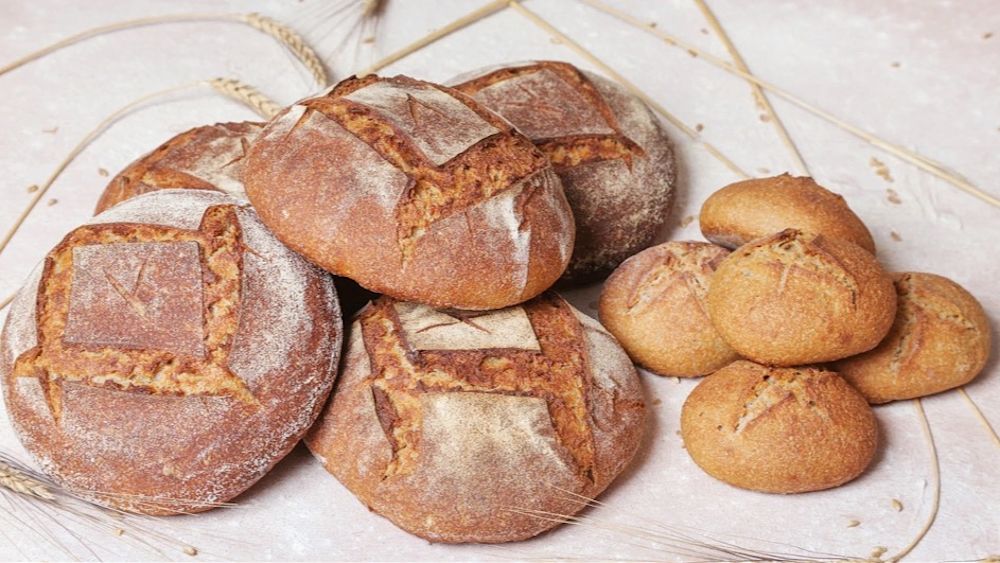
Bread, cheese, and wine is a holy trinity in France, and it’s currently under siege. With growing concerns about gluten sensitivity and the global vegan awakening, the bread and cheese combo might not survive this century unless we adapt their recipes.
Taking on one of the more appreciated culinary treasures of France won’t be an easy task though, since a French person eats on average 27.2kg of cheese per year, which makes France the world’s fourth biggest consumer after Denmark (28.1kg), Iceland (27.7kg) and Finland (27.2kg). In 2017 alone, the country sold 7.6Bn€ ($9.4Bn) worth of cheese. Knowing that 90% of the French population include cheese in their food habits, 40% eats it every day, and 10% can’t imagine a meal without it (Statista), what will the future of cheese in the country look like?
Bread is also a serious affair in France: the country counts more than 30,000 independent bakeries and the French consume around 10 billion baguettes a year. Eating bread plays a key role in the local culture, as France, with an average consumption at 59.5 kg per person forecasted in 2021, is among the top 10 consumers worldwide. 2020's confinements have put bread back into fashion with many people baking at home worldwide - which translated into a peak of searches for bread recipes on Google during March, April and May.
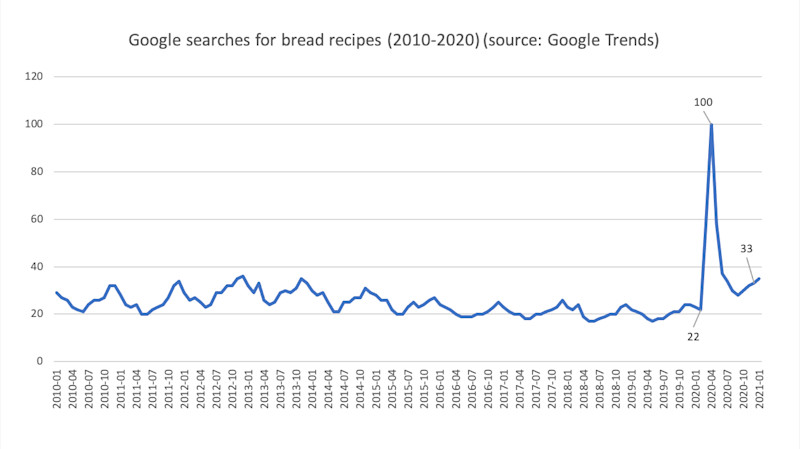
How can a country whose culture and gastronomy evolve so much around bread and cheese survive a more modern diet? By shaking those old industries with innovative recipes and production methods.
Among those troublemakers is Nour Akbaraly, the CEO of Les Nouveaux Affineurs. Founded in 2017, Les Nouveaux Affineurs (“The New Maturers”) has a bold value proposition considering its French roots: selling novel “cheeses” made out of a variety of plant-based milk substitutes instead of milk from animals.
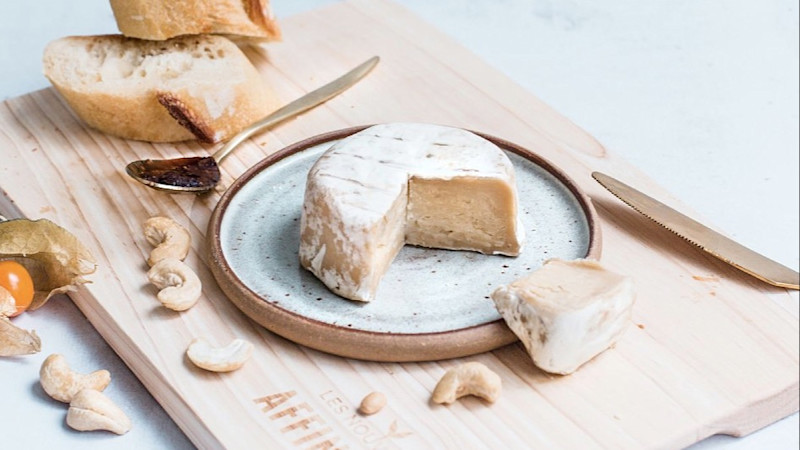
How can Les Nouveaux Affineurs seduce consumers? By positioning their product not as cheese, but as an alternative product that has its proper specificities and flavors. It’s why Les Nouveaux Affineurs is calling their products “affinés végétaux” (“vegetal ripened”). The need to come up with a new category that makes their marketing positioning clear to both early adopters and potential detractors isn’t the only reason though. Indeed, this new type of product cannot be labeled as ‘“cheese” in France and Europe after a German association filed a lawsuit in 2017. The court of justice of the EU ruled in its favor and now requires the commercial usage of the “cheese” denomination to be limited only to products made with animal milk. Alternatives are now being sold under a few different labels, including “vromage” (v for vegan), “frawmage” or “fauxmage”, or “vegetal affined” in the case of Les Nouveaux Affineurs.
The company has been selling its products for a year online and is in almost 30 stores spread all over France, from Brittany to the South of France. With a new funding round of 2M€ ($2.4M) raised in February 2020 with Demeter, Newfund, and Beyond Investing, a Swiss fund specialized in vegan-related products, the company plans to scale their production at an industrial level in the region Île-de-France in order to lower production costs and expand its distribution network. As of today, Les Nouveaux Affineurs only produces a few tons per year, so moving to a few tons a week will require engineering a brand new production system. This will enable the team to lower their prices, as those are currently quite expensive compared to traditional cheese, ranging from 50€ ($61) to 100€ ($122) a kilogram.
Their products are based on pastes of almonds, walnuts, cashews, peas, and soy from organic farming. The mixture is then fermented with bacteria and yeasts that are used in traditional cheese making. While its maturing happens in a cold chamber, similarly to traditional cheeses, the process is faster than most traditional cheese maturing since it only lasts between two and eight weeks. To develop custom recipes, Akbaraly surrounded himself with agro-food engineers as well as a researcher from the Institut National de la Recherche Agronomique, the National Institute for Agronomic Research.
While selling such a novel product requires a lot of pedagogy to educate consumers, Les Nouveaux Affineurs will likely benefit from two major trends. On one side, the global vegan cheese market, valued at $2.15Bn in 2020, is projected to expand at a CAGR of about 9% between 2020 and 2025. The millennial generation is driving this trend with its growing concerns about animal welfare and the increased awareness of sustainability offered by the vegan food industry. On the other side, the spread of intolerance towards lactose and dairy products in general is affecting millions of people worldwide, and a portion of it is likely to be interested in finding alternative products.
To please the palate of as many people as possible, Les Nouveaux Affineurs sells four products that are either refined or fresh cheese-like. The result can be surprising, since the goal isn’t to craft an ersatz of cheese but a new kind of product: while the texture is close to a traditional cheese’s, the taste is different with notes that can remind one of a Saint-Nectaire or a Reblochon.
Les Nouveaux Affineurs doesn’t market its products only to vegans, who represent less than 2% of the French population (1.3M people). Some clients are simply curious to try new things, some have lactose intolerance, and some have cholesterol issues. The products, therefore, appeal to a broader audience, which could explain why larger corporations are getting into the space. In March 2020, Bel Group acquired 80% of the startup All in Foods, which produces products similar to those of Les Nouveaux Affineurs.
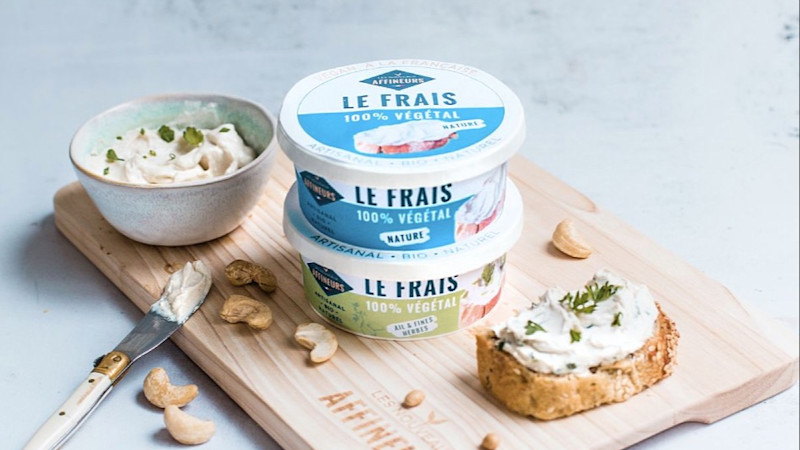
What will we eat with those new vegan cheeses? Baguettes? Health professionals wouldn’t recommend it, especially if you’re gluten-sensitive, but if you're a bread enthusiast, rest assured that a new generation of bakers is trying to undermine the industry. Among them is a young Italian who is condemning the Queen of the nation, the French baguette. If there’s one thing that Adriano Farano isn’t scared of, it’s shaking up the bread industry in France - and he has many legitimate arguments to try and do so. The white bread baguette is among the worst nutritional options in bread, since its flour has lost all nutrients while its glycemic index skyrockets at 90 out of 100. For Adriano, there’s no difference between eating a baguette and drinking a can of soda.
The founder of Pane Vivo, a novel bakery located in Paris that uses a 132-year old sourdough levain, Adriano is fighting to offer a variety of bread that can appeal to everyone, especially the most gluten-sensitive bellies. A few years before opening Pane Vivo, Adriano had a totally different life: living in Silicon Valley, he founded a tech startup called Watchup that he eventually sold to the video platform Plex. Back there, he realized it was highly complicated to find a nutritive bread that wasn’t hard to digest, made with too much salt or sugar. Since he couldn’t find what he was looking for, especially as he wanted to share his love of bread with his son, Adriano ended up building his first clay oven and making and selling his own bread in California.
The success of that clay oven and other entrepreneurial opportunities allowed Adriano to move his family back to Paris and open Pane Vivo. The company is still in infancy, as their bakery opened right before the first confinement in France last March, but that didn’t prevent Pane Vivo from multiplying sales by 10 in just 6 months. The company sells six kinds of bread, the most emblematic two being Sapiens, priced at 14.5€ ($18) for a one-kilogram loaf, and Gaïa, a small loaf that costs 5.8€ ($7). For comparison, a baguette in Paris is around 0.90€ ($1.09).
For Adriano, it was impossible to accept the compromise the industry had created: a gluten-free bread or a cheap bread full of hard-to-digest gluten. Confronting the powerful status quo in France, Adriano has met much reluctance from the old guard who was either dismissive or skeptical about his fight to reintroduce an older yeast and the traditional process of making bread. Being a bread lover and a former journalist, Adriano has not only opened a bread lab and a bakery in 2020, but also written a book attacking the industry. In Je ne mangerai pas de ce pain-là (“I am not going to eat this kind of bread”), he reveals how most of the bread we eat today is made from flour whose quality suffers directly from the intensification of the agriculture and the introduction of genetic transformations over the past decades. To get better yields, the number and variety of wheat have been reduced, and the standardization of the bread sold today has dangerous and long-lasting impacts on the population’s health because of its high glycemic index and its poor nutritional intake. In other words, the bread we eat today is too salty, too sweet, and too full of indigestible gluten.
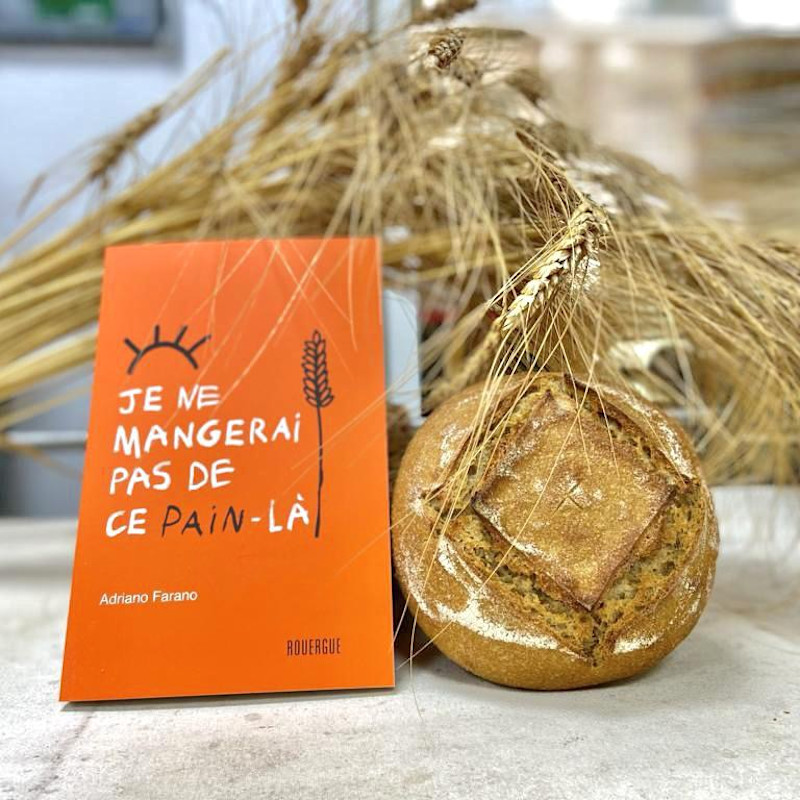
Adriano is on a mission to convince people that bread isn’t bad per se and that it can be actually good for your health if it’s made the right way, whether it’s the selection of the wheat itself, the way of milling the grains (Adriano is a fervent advocate of the traditional mill used to grind the grains at Pane Vivo), or the yeast itself. He firmly believes that the brewer’s yeast can be harmful, as it induces a too-fast leavening which prevents the human body from assimilating minerals contained in the plant. The mother yeast used at Pane Vivo comes from an ancient strain of durum wheat and a 133-year old sourdough levain and is made from a whole milling process that is more respectful of the natural process at stake.
To prove the soundness of his approach, Adriano commissioned gluten analysis before choosing the flours. He spent three years tracking down and testing hundreds of flours and ended up picking the autochthonous Silician flour, which has a more reddish aspect and whose gluten is 100% digestible.
With almost half a billion euros invested between 2014 and 2018 in the French foodtech ecosystem (2.6% of the global investment in foodtech), some of the best chefs in the world, and its traditional craftsmanship, France is poised to give birth to a new generation of innovative ventures, potentially reinventing what we will eat tomorrow.
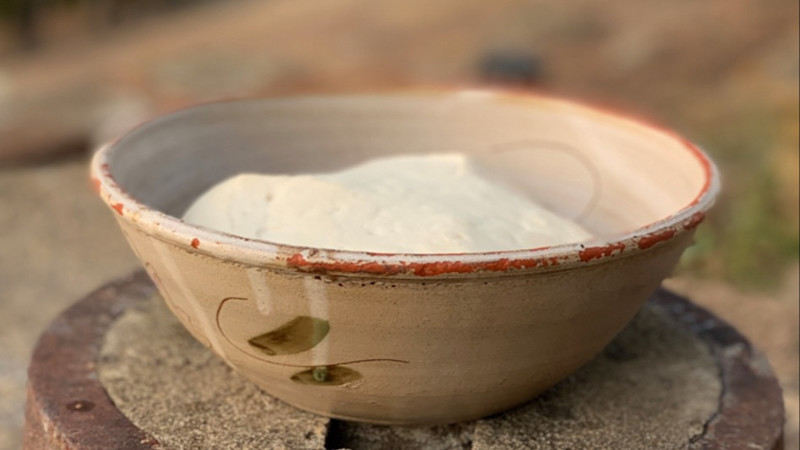
--
The Org is a professional community where transparent companies can show off their team to the world. Join your company here to add yourself to the org chart!
In this article


The ORG helps
you hire great
candidates
Free to use – try today